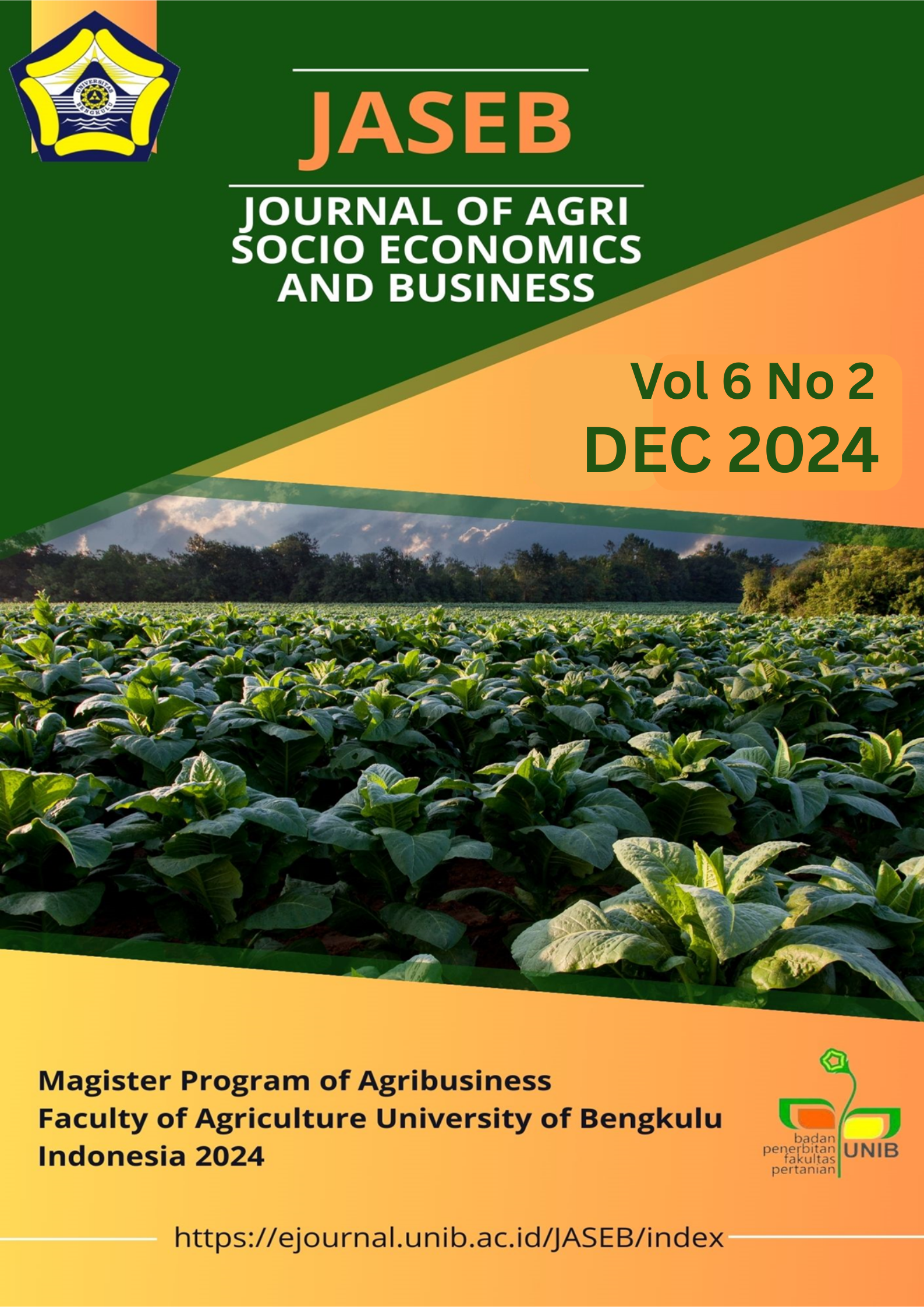Main Article Content
Abstract
This research aimed to analyse the agribusiness system and local
wisdom in the fulfilment of food, and the mechanism for meeting
the food needs of fishermen households in Lontar Village,
Tirtayasa District, Serang Regency. Direct interviews were
conducted with fishermen living in the coastal area of Lontar
Village who are members of the Joint Business Group using a list
of questions. The data was analysed using the Food Coping
Strategy Index to study the mechanism of fishermen's households
for meeting their food needs to increase food security. The research
results showed that fishermen's households in Lontar Village rely
on coastal agriculture and fisheries business diversification as the
main strategy for filling food needs. Based on the Food Coping
Strategy analysis, fishermen's households implemented
mechanisms to face the crisis with defensive behavior to meet food
needs from Level I to Level III. This defensive behavior is
dominated by efforts in Phase I, such as looking for a side job
(61.11%), gardening (33.33%), raising goats (44.44%), reducing
the type of food consumed (66.67%), and reducing meal frequency
by 50% of households. On the other hand, the behavior of often
using their savings to buy food dominated level II by 16.65%,
borrowing money from close relatives by 55.56% and buying food
needs by paying later as much as 22.22% of households. Stage III
was carried out with migration to cities and abroad by 66.67% of
households.
Article Details
Copyright (c) 2024 Tatang Sutisna, Siti Widiati

This work is licensed under a Creative Commons Attribution-ShareAlike 4.0 International License.
An author who publishes in the Journal of Agri Socio Economics and Business agrees to the following terms:
Author retains the copyright and grants the journal the right of first publication of the work simultaneously licensed under the Creative Commons Attribution-ShareAlike 4.0 License that allows others to share the work with an acknowledgement of the work's authorship and initial publication in this journal
Submission of a manuscript implies that the submitted work has not been published before (except as part of a thesis or report, or abstract); that it is not under consideration for publication elsewhere; that its publication has been approved by all co-authors. If and when the manuscript is accepted for publication, the author(s) still hold the copyright and retain publishing rights without restrictions. For the new invention, authors are suggested to manage its patent before published. The license type is CC-BY-SA 4.0.
Journal Agri Socio-Economics and Business is licensed under a Creative Commons Attribution-ShareAlike 4.0 International License.
